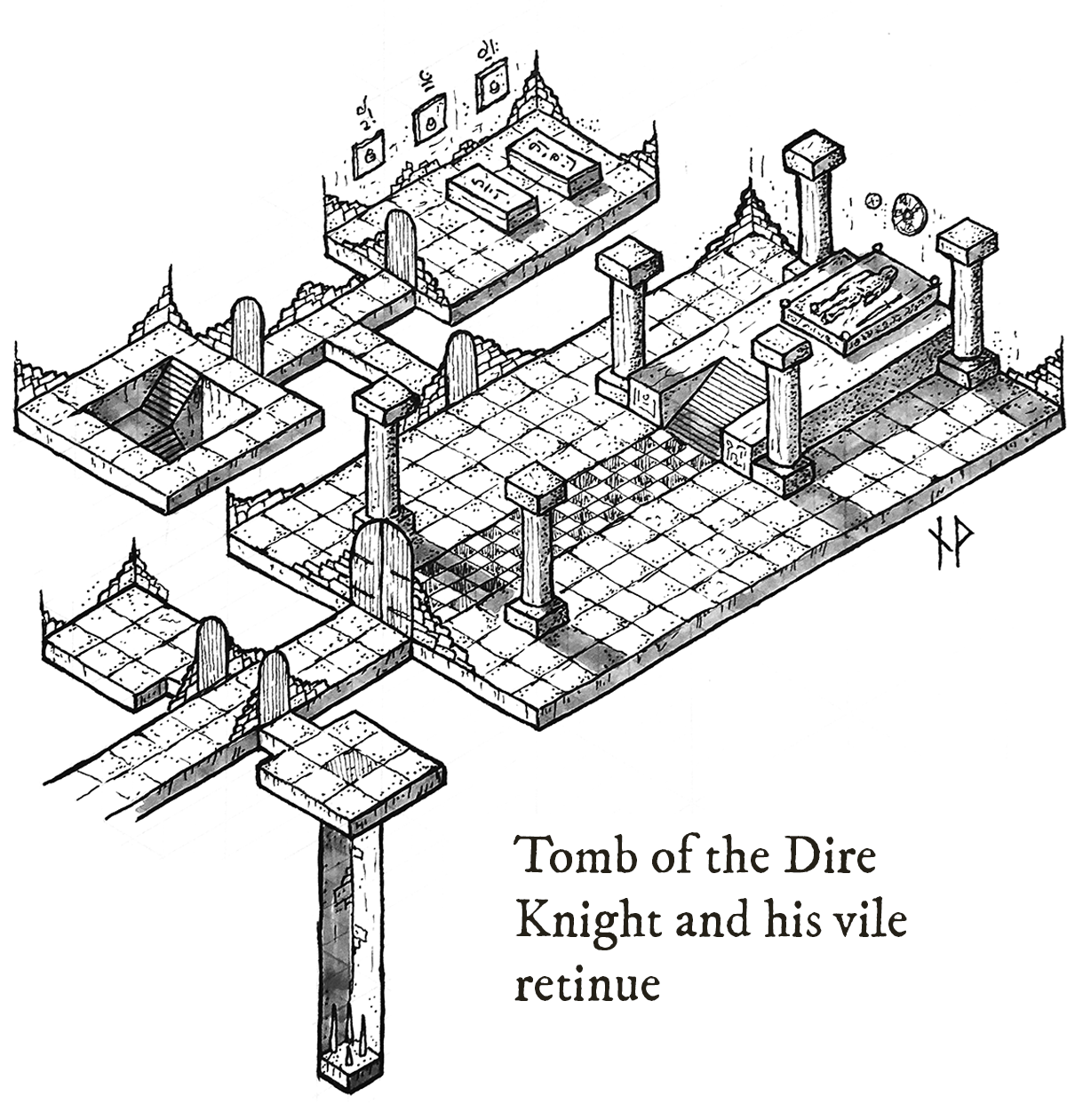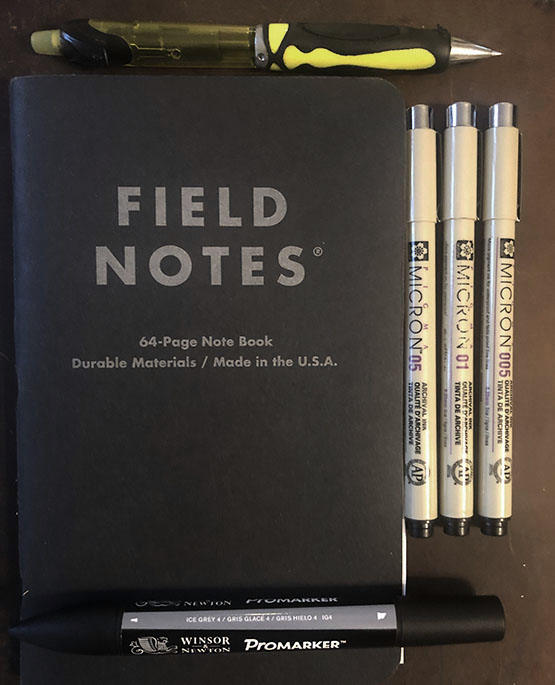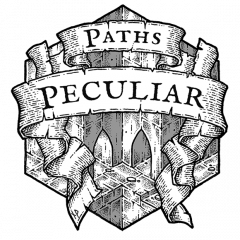If you enjoy my drawings, you might also find my tutorials useful. It’s really not that hard to draw maps, it just takes a bit of patience and practise, and following tutorials is a great way of practising different techniques.
Choose one of the following links to get started:
How to draw an isometric dungeon map
How to draw an isometric tower
How to draw buildings and villages
How to draw a fantasy castle map
How to use Photoshop to clean up an ink drawing

What tools should I get for drawing maps?
Get good tools, it’s important. It makes the process of drawing by hand much more fun, and you will get better results. Here’s some of my recommendations on map-making tools:
- A set of decent markers, such as Pigma Micron, Uni Pin or Copic fine markers are not expensive, but makes a lot of difference. Try to get a set of different sized pens so you can work with lines of varying thickness. I usually use three or four different sized pens for one drawing.
- Gray Promarkers are great for adding shadows. Drawing shadows is easy, but adds a lot of character to your maps. You could also pick up some of their coloured markers, should you want to draw colour maps.
- I have plenty of different sketching pads laying around, but I tend to use either dotted paper note books from Field Notes (they’re small, so it’s easy to keep one tucked away in your bag) or a larger Rhodia dotPad. I find dotted paper really helpful when drawing maps, however it does take some time to remove the dots digitally after the image is scanned.
- Isometric paper. When I draw isometric maps, isometric paper pads from Hahnemühle is my go-to pad. I find them immensely helpful and I would have a hard time drawing isometric maps without the grid.




The link to the isometric paper is broken. Here is the updated URL (feel free to correct and erase my comment)
https://www.hahnemuehle.com/en/artist-papers/technical-papers/isometric-paper.html
Thanks! Link in article is now updated.